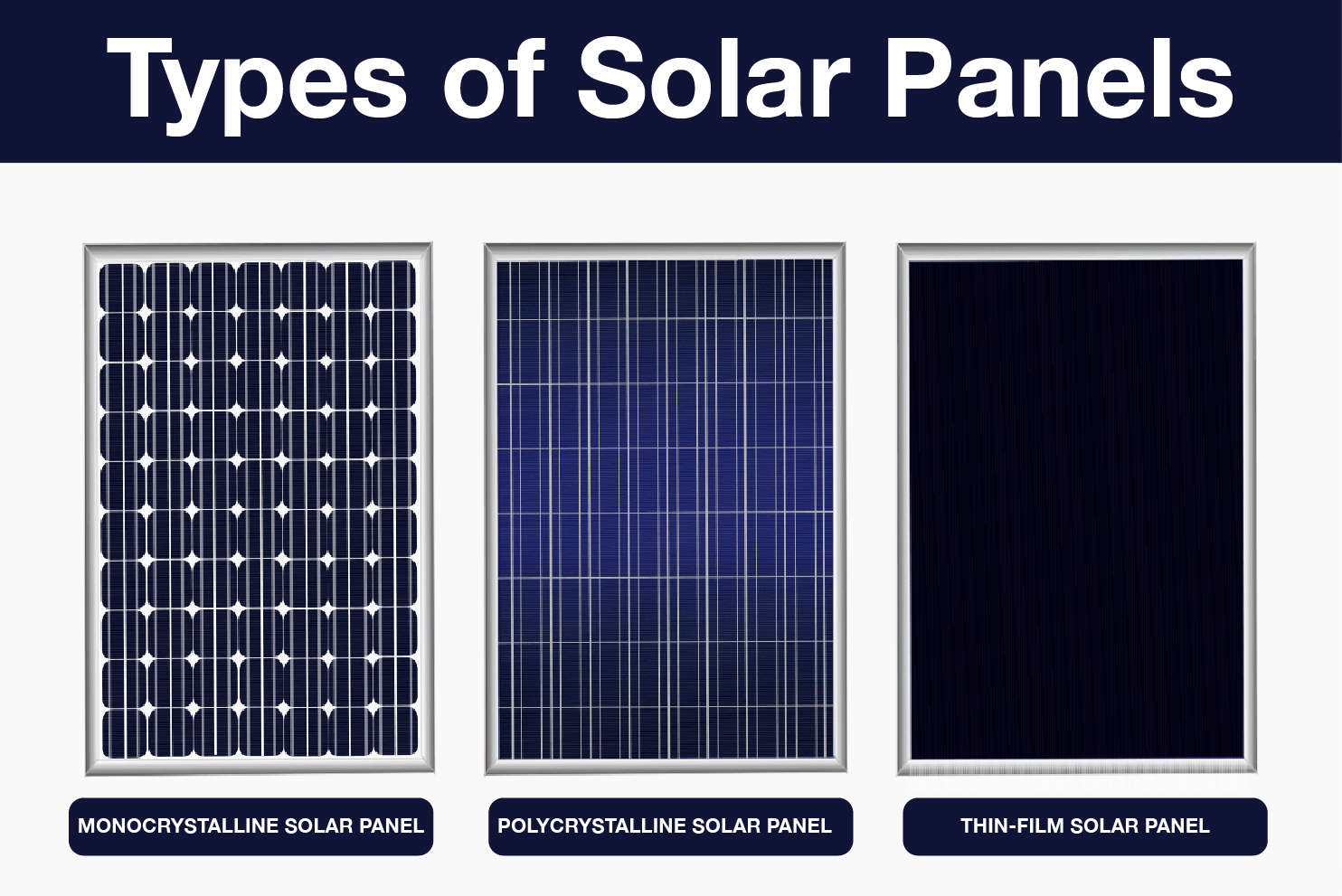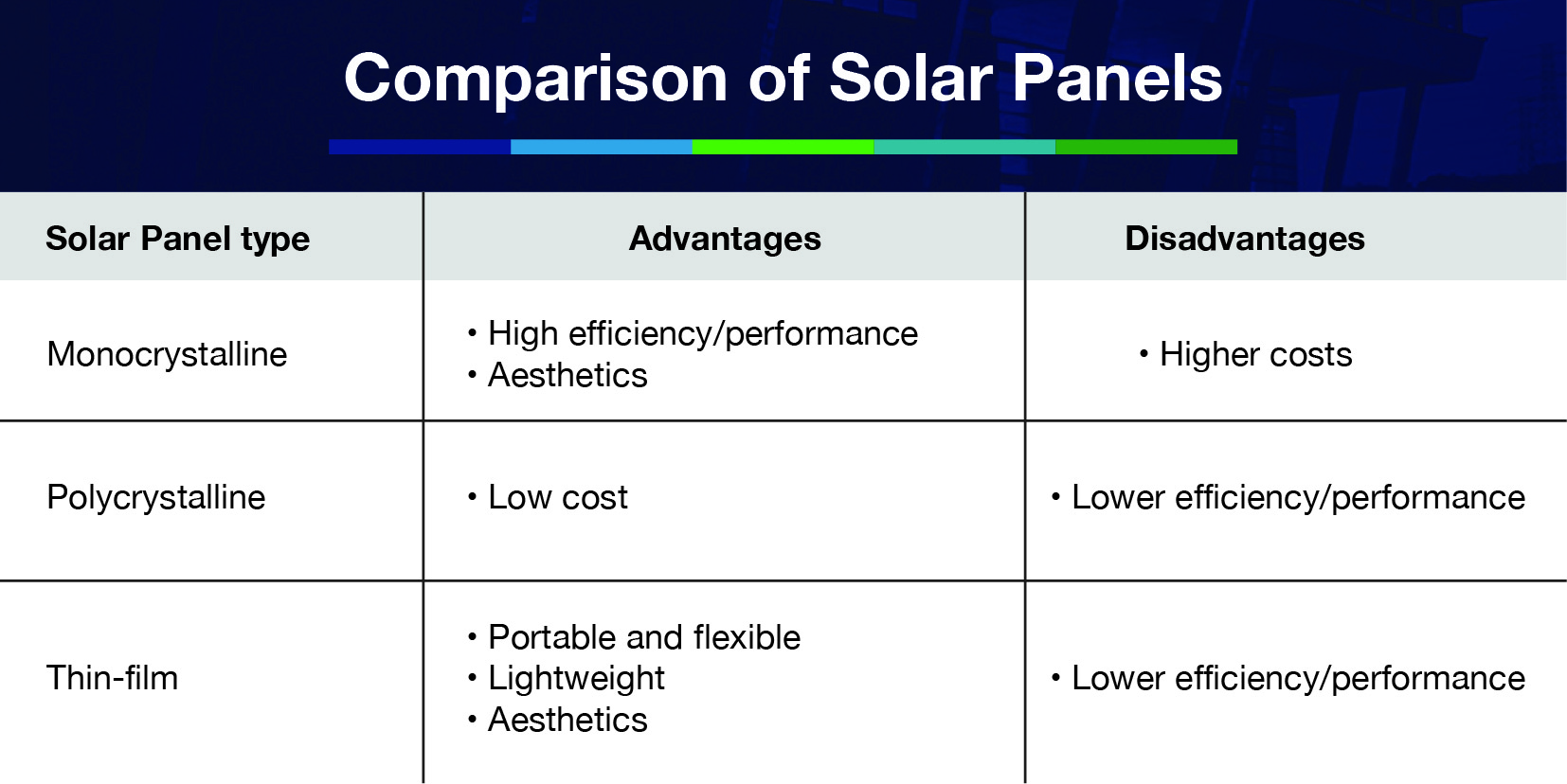If you’re considering investing in a solar system, the best place to start is by educating yourself... In this article, we’re giving you a basic understanding of the types of solar panels.
What is a solar panel?
A ‘solar panel’ is a commonly used term for a Photovoltaic (PV) module. It is an assembly of PV cells mounted or housed in a framework for installation. Inside this framework is a silicone cell protected by a thick and clear sheet of protective glass. A collection of PV modules is called a PV or solar panel, and a system of panels is referred to as an array.
How do solar panels work?
PV cells in a panel absorb light energy or irradiance from the sun to produce direct current (DC) electricity. PV panels form part of a solar system. Once light energy has been harvested and transformed into practical energy, it gets sent to an inverter to be transformed.
Other components of a solar system may include batteries, chargers, and the balance of system (wiring, switches, etc.)
Types of solar panels
Types of solar panels typically used include monocrystalline, polycrystalline, and thin film.
1. Monocrystalline panels
- Made from a single crystal structure
- Older technology of the three panel types
- Solar cells have a uniform flat colour
- Most efficient – you can install fewer of these high-efficiency panels
- Most expensive per watt
2. Polycrystalline panels
- Newer technology – require less silicon
- Most affordable – lowest price per watt
- Less efficient
3. Thin film panels
- Made from a variety of materials
- 4 different types of thin film panels
- The most prevalent type of thin film panel is made from cadmium telluride (CdTe)
- Can also be made from silicon, similar to the composition of mono and polycrystalline panels
- Least commonly used type of panel
With the progression of technology, the monocrystalline and polycrystalline panels have superceded thin film. Consider turning to a monocrystalline panel if you'd like to enjoy the benefits of higher efficiencies, and less degradation. Advantages of higher powered panels include maximising your roof space, minimising components required for the installation, and (theoretically) enjoying a slightly cheaper installation per watt.
Need a solar solution for your home or facility? Not quite sure if it's a feasible option for you? Contact us, and we will put together a desktop proposal for you!
Click here to chat to our solar experts…
Resources
Watch our quick video for more on solar panels.
Download our Solar & Back-up Power catalogue
Click below to learn more about:
- The different types of solar systems
- Batteries
- Inverters
- Tier 1 solar panel manufacturers



